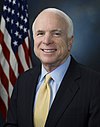
Human Rights Watch (HRW) is an international non-governmental organization which conducts research and advocacy on human rights. Headquartered in New York City, the group investigates and reports on issues including war crimes, crimes against humanity, child labor, torture, human trafficking, and women's and LGBTQ rights. It pressures governments, policymakers, companies, and individual abusers to respect human rights, and frequently works on behalf of refugees, children, migrants, and political prisoners.
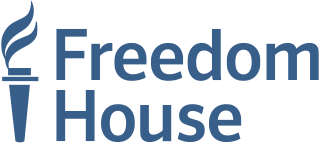
Freedom House is a nonprofit organization based in Washington, D.C. It is best known for political advocacy surrounding issues of democracy, political freedom, and human rights. Freedom House was founded in October 1941, with Wendell Willkie and Eleanor Roosevelt serving as its first honorary chairpersons. Most of the organization's funding comes from the U.S. State Department and other government grants. It also receives funds from various semi-public and private foundations, as well as individual contributions.
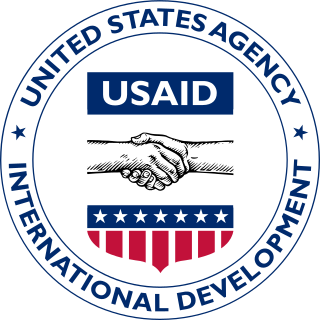
The United States Agency for International Development (USAID) is an independent agency of the United States government that is primarily responsible for administering civilian foreign aid and development assistance. With a budget of over $50 billion, USAID is one of the largest official aid agencies in the world and accounts for more than half of all U.S. foreign assistance – the highest in the world in absolute dollar terms.
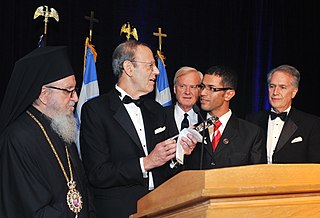
The National Endowment for Democracy (NED) is a quasi-autonomous non-governmental organization in the United States founded in 1983 with the stated aim of advancing democracy worldwide, by promoting political and economic institutions, such as political groups, business groups, trade unions, and free markets.
The International Foundation for Electoral Systems (IFES) is an international, non-profit organisation founded in 1987. Based in Arlington, Virginia, United States, the organization assists and supports elections and electoral stakeholders. Since 1987, IFES has worked in 145 countries and has programs in more than 50 countries throughout Asia-Pacific, Africa, Eurasia, the Middle East, and North Africa, and the Americas.

The National Democratic Institute (NDI) is a non-profit American non-governmental organization whose stated mission is to "support and strengthen democratic institutions worldwide through citizen participation, openness and accountability". It is funded primarily by the United States and other Western governments, by major corporations and by nonprofits like the Open Society Foundations.

General elections were held in Haiti on 7 February 2006 to elect the replacements for the interim government of Gérard Latortue, which had been put in place after the 2004 Haiti rebellion. The elections were delayed four times, having originally been scheduled for October and November 2005. Voters elected a president, all 99 seats in the Chamber of Deputies of Haiti and all 30 seats in the Senate of Haiti. Voter turnout was around 60%. Run-off elections for the Chamber of Deputies of Haiti were held on 21 April, with around 28% turnout.
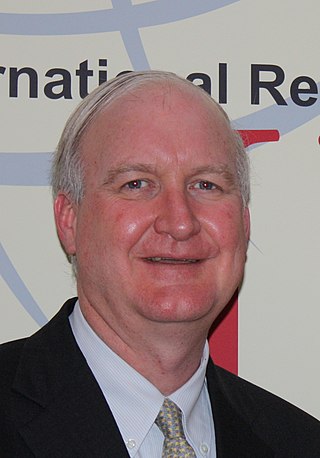
Lorne Whitney Craner was an American foreign policy expert, has served in key diplomatic and policymaking roles in three administrations and three times as president of major non-governmental organizations.
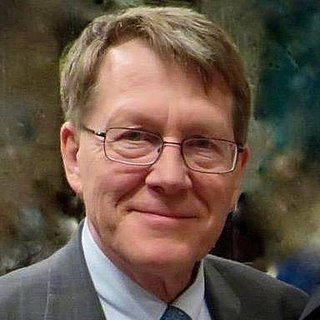
Kent Richmond Hill is an American academic administrator. He is Senior Fellow for Eurasia, Middle East, and Islam at the Religious Freedom Institute in Washington, D.C..

Hong Kong–United States relations are bilateral relations between Hong Kong and the United States.
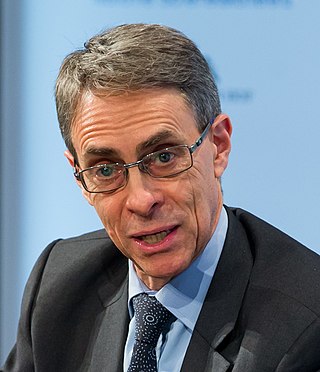
Kenneth Roth is an American attorney, human rights activist, and writer. He was the executive director of Human Rights Watch (HRW) from 1993 to 2022.

Democracy promotion by the United States aims to encourage governmental and non-governmental actors to pursue political reforms that will lead ultimately to democratic governance.

Eileen Chamberlain Donahoe is an American diplomat and human rights activist who was U.S. Ambassador to the United Nations Human Rights Council, having been appointed by President Barack Obama in 2009. She was the first ambassador following the referent UN body changing from the predecessor United Nations Commission on Human Rights. After serving her term as ambassador, Donahoe was appointed as Director of Global Affairs for Human Rights Watch. In 2014, she was also appointed to the board of International Service for Human Rights. She is also an affiliate of Stanford University's Center for International Security and Cooperation, a center of the Freeman Spogli Institute for International Studies and Executive Director of the Global Digital Policy Incubator at the Freeman Spogli Institute's Cyber Policy Center working at the intersection of governance, technology and human rights.

Rating, or fully the Sociological group "Rating", is a Ukrainian independent, non-governmental research organization, that specializes in conducting all types of sociological research in compliance with international standards approved by the ESOMAR and WAPOR codes. It conducts national and regional political, thematic, marketing and media research on a regular basis. Sociological group "Rating" is a part of the Rating GroupTM "group of companies ". The company has branches in Kyiv and Lviv. The network of interviewers is composed of more than 500 people operating throughout Ukraine. The company is a permanent member of the Sociological Association of Ukraine.

Carl Gershman served from 1984 to 2021 as the founding president of the National Endowment for Democracy (NED), a private, congressionally-funded, grant-making institution that supports non-governmental groups working for democracy around the world. During his presidency, NED's annual congressional appropriation grew from $18.5 million in 1984 to $300 million a year in 2021, when it funded nearly 2,000 projects in 100 countries.
Eric Bjornlund is an American expert in democratization assistance and election observation and co-founder and president of Democracy International and the author of Beyond Free and Fair: Monitoring Elections and Building Democracy. Bjornlund is also a lawyer and adjunct professor at Georgetown University.

The Inter-Parliamentary Alliance on China (IPAC) is an international, cross-party alliance of parliamentarians from democratic countries focused on relations with the People's Republic of China (PRC), and specifically, the Chinese Communist Party (CCP). It was established on June 4, 2020, on the anniversary of the 1989 Tiananmen Square protests and massacre. The alliance comprises over 240 members from 27 legislatures and the European Parliament. Each legislature represented takes turns to chair the alliance on a rotating basis. Its purpose is to create a coordinated response to China on global trade, security and human rights.

Hong Kong Democracy Council (HKDC) is a Washington, D.C.–based nonpartisan, non-governmental organization advocating for Hong Kong's autonomy. Formed during the 2019 Hong Kong protests, HKDC was one of the largest groups of exiled activists following the imposition of national security law in 2020 by Chinese government.

Shanthi Kalathil is an American foreign policy analyst and former journalist, currently serving as a Washington D.C.–based senior fellow at the University of Southern California's Center on Communication Leadership and Policy and a visiting senior fellow at the German Marshall Fund's Alliance for Securing Democracy, where her work focuses on strengthening global democratic resilience in countering authoritarian influence. She is also a board member of the National Democratic Institute and Radio Free Asia.


















